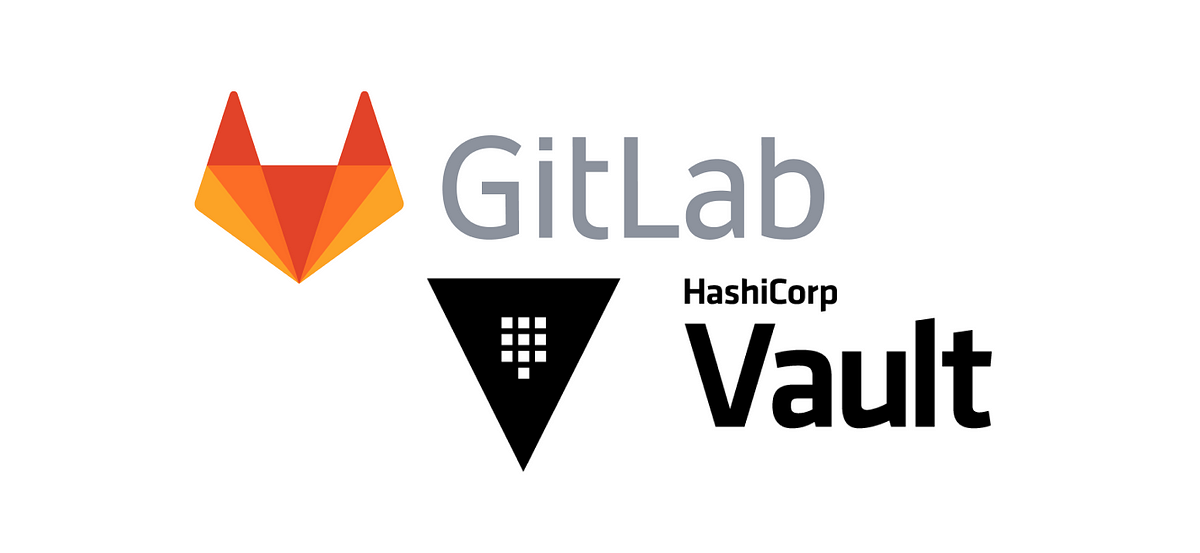Securely Integrating Hashicorp Vault with GitLab CI/CD: A Step-by-Step Guide
 Bruno
BrunoTable of contents

Linking HashiCorp Vault & Gitlab in Community Edition brings some constraints.
Concepts
For each job, Gitlab provides a JWT token.
The runner returns this JWT and a "role name" when it authenticates to Vault.
Vault receives this token which contains some claims and compare them with theirs described in his role.
The Vault role has policies linked. Only secrets from these policies will be allowed.
If passed, Vault returns a token to runner.
The runner reads secrets from Vault with this token.

Example of token provided by Gitlab
{
"kid": "3c-J-jPF6dm453ZAxudq8lBdjDXL_zPkEujYdAWAz0",
"typ": "JWT",
"alg": "RS256"
}
{
"namespace_id": "52",
"namespace_path": "ns",
"project_id": "22",
"project_path": "ns/poc-vault",
"user_id": "26",
"user_login": "monlogin",
"user_email": "prenom.nom@mail.com",
"user_access_level": "owner",
"pipeline_id": "318",
"pipeline_source": "push",
"job_id": "972",
"ref": "main",
"ref_type": "branch",
"ref_path": "refs/heads/main",
"ref_protected": "true",
"runner_id": 39,
"runner_environment": "self-hosted",
"sha": "edac6ds25bd7c523347f18b48db5f41115a40c4d",
"project_visibility": "internal",
"ci_config_ref_uri": "gitlab.com/ns/poc-vault/.gitlab-ci.yml@refs/heads/main",
"ci_config_sha": "edac6f825bd7a523357a18b48dbef48325940c4d",
"jti": "06636c24-a820-4509-a18c-9796da061f94",
"iss": "https://gitlab.com",
"iat": 1711534889,
"nbf": 1711534884,
"exp": 1711538489,
"sub": "project_path:ns/poc-vault:ref_type:branch:ref:main",
"aud": "https://gitlab.com/"
}
Vault
GitLab Community Edition users can pull secrets from Vault.
You must manually set the authentication environment variables to do so.
🔗 https://developer.hashicorp.com/well-architected-framework/security/security-cicd-vault#gitlab
Here we go !
Setup Vault
Enable JWT authentication
$ vault auth enable jwt
Success! Enabled jwt auth method at: jwt/
$ vault write auth/jwt/config \
oidc_discovery_url="https://gitlab.com" \
bound_issuer="https://gitlab.com"
Success! Data written to: auth/jwt/config
Create a policy
$ vault policy write poc-vault - <<EOF
# Read-only permission on 'kv/applis/myapp/*' path
path "kv/data/applis/myapp/*" {
capabilities = [ "read" ]
}
EOF
Success! Uploaded policy: poc-vault
Create a role linked to JWT auth and the policy we have created above
$ vault write auth/jwt/role/poc-vault - <<EOF
{
"role_type": "jwt",
"policies": ["poc-vault"],
"token_explicit_max_ttl": 60,
"user_claim": "user_login",
"bound_claims_type": "glob",
"bound_claims": {
"project_id": "22",
"ref_type": "branch",
"ref": "main"
}
}
EOF
Success! Data written to: auth/jwt/role/poc-vault
Create .gitlab-ci.yml file
# .gitlab-ci.yml
read_secrets:
image: hashicorp/vault:latest
id_tokens:
VAULT_ID_TOKEN:
aud: https://gitlab.com/
script:
- export VAULT_ADDR=https://vault.local/
# authenticate and get token. Token expiry time and other properties can be configured
# when configuring JWT Auth - https://developer.hashicorp.com/vault/api-docs/auth/jwt#parameters-1
- export VAULT_TOKEN="$(vault write -field=token auth/jwt/login role=poc-vault jwt=$VAULT_ID_TOKEN)"
# use the VAULT_TOKEN to read the secret and store it in an environment variable
- export PASSWORD="$(vault kv get -field=dbpass kv/applis/myapp/front)"
- echo $PASSWORD
Subscribe to my newsletter
Read articles from Bruno directly inside your inbox. Subscribe to the newsletter, and don't miss out.
Written by

Bruno
Bruno
Depuis août 2024, j'accompagne divers projets sur l'optimisation des processus DevOps. Ces compétences, acquises par plusieurs années d'expérience dans le domaine de l'IT, me permettent de contribuer de manière significative à la réussite et l'évolution des infrastructures de mes clients. Mon but est d'apporter une expertise technique pour soutenir la mission et les valeurs de mes clients, en garantissant la scalabilité et l'efficacité de leurs services IT.